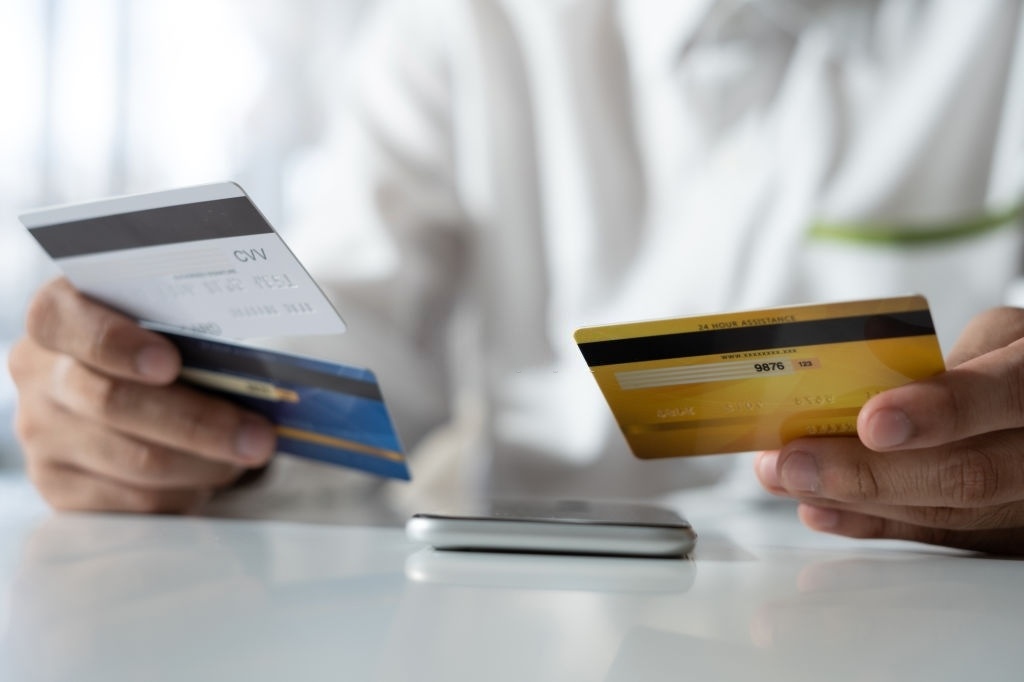Did you know that, with good financial planning, credit and debit cards can be good allies for your finances? With them, it is possible to control your expenses and budget, make purchases in installments, accumulate miles, or even obtain discounts on products. Just have a little self-control and keep an eye on some points. Want to know how to best use your credit and debit cards in every situation? Check out this article.
1. What are the main differences between the credit and debit cards?
The debit card literally works like plastic money. When you purchase, the money is immediately deducted from your bank account. When your balance runs out, debit transactions are no longer authorized (unless you have an overdraft). The credit card works as a kind of automatic loan because you make the purchase and only pay when the invoice arrives.
2. When to use credit or debit card?
1. To take advantage of promotions and points programs: CREDIT!
Some credit cards like MBNA Smart Cash World and Scotia-Infinite offer additional benefits such as cash back, frequent flyer programs, and travel insurance etc. With good use planning, the credit card can be very useful to save with items like these. Attention: basic credit cards like Amex-Green do not offer many benefits. However, they have lower or no annual fees.
2. To better plan your budget: CREDIT!
You can use the The credit card as a good ally in controlling your accounts. Just use your monthly bill to make good financial planning. Carefully monitor your expenses and see where you can reduce or adjust them according to your goals. (see also: 5 Ways To Reduce Your Monthly Expenses And Improve Your Budget)
3. To pay in installments: CREDIT!
If you want to split a payment into two or more installments, you can’t do that with a debit-only card. Installment purchases are one of the main applications of credit cards. But you need to be careful to see if interest is charged for installments and plan well to pay off all installments monthly. With a good follow-up of your accounts, you can decide, for example, whether it is better to pay in fewer installments and pay off the debt soon or divide it into more installments of lesser value.
An interesting option to organize yourself better is to have a card with smart limits, one for small purchases and another for larger purchases, in installments. (See also: Four Good Reasons To Consider Having More Than One Credit Card).
4. To avoid carrying cash: DEBIT!
The idea is to take only your debit card with you. So, in case of loss or theft, just block the card while there could be no way to recover your cash if stolen.
5. To have better control of expenses: DEBIT!
If you do not have good financial planning, it may be more advisable to use a debit card. Thus, you only spend what you have in your account at that moment (unless you have an overdraft).
Even so, the most advisable thing to keep your budget up to date (and not run out of money at the end of the month) is to follow up well financially. You must pay attention to your account statement to better plan your expenses. (See also: 5 Expenses You Can Lower To Improve Your Budget).
6. To withdraw money abroad: You have a few options
- use credit cards with no foreign exchange fees
- use a prepaid card.
- withdraw money (in local currency) with your debit card (depending on the card and the financial institution).
In conclusion: pay attention to the payment of your credit card bill.
It is extremely important to be aware of the installments you make with your credit card. Have continuous monitoring of your expenses and plan to pay your bills on time. When you pay only the minimum invoice amount, you enter the revolving card, which charges high interest, and thus you can end up creating a debt that is difficult to settle. To avoid credit card debt, plan and pay the full amount of your invoices on time.


